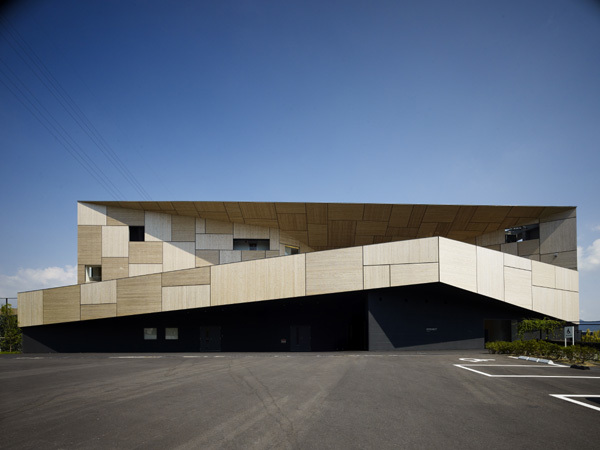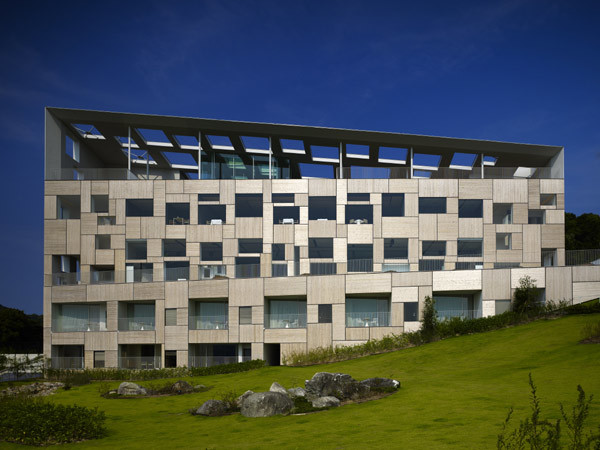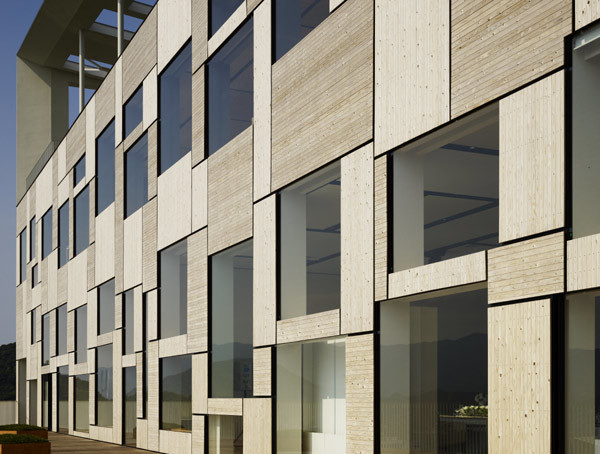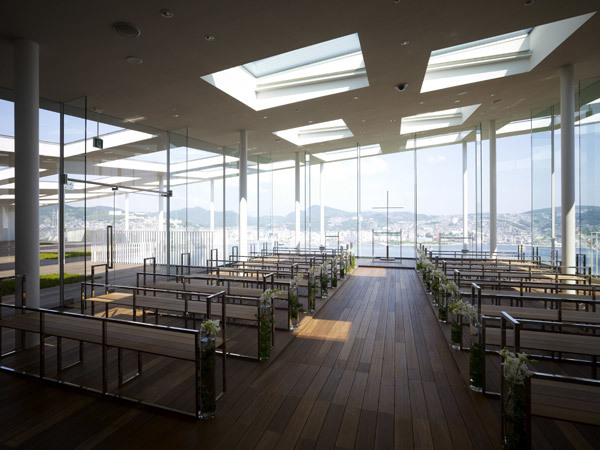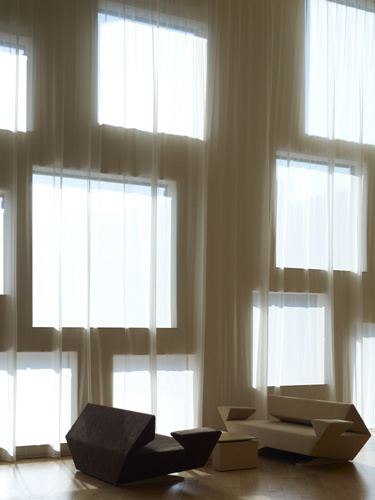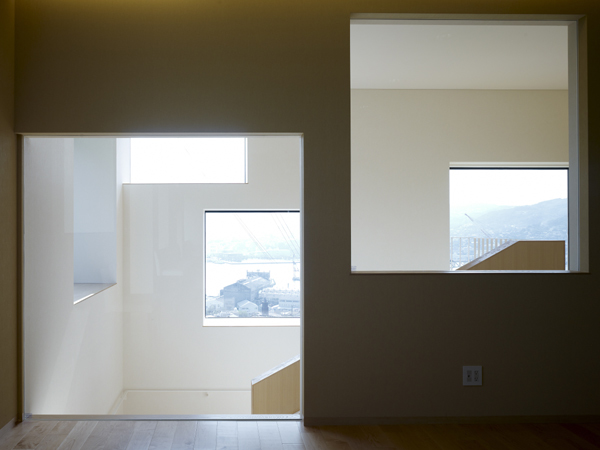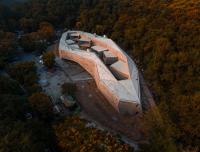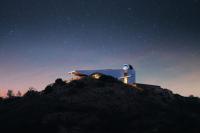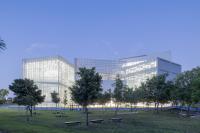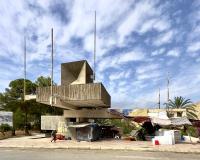Garden Terrace Nagasaki
Nagasaki, Japan
One of our biggest challenges in this project was to integrate three entirely different volumes – a big box, a small box, and a linear form – via several common identities. One of those identities is the box, which also serves as a roof. The other is the concept of an architectural form that is “made of,” but not “covered with,” a natural material, in this case wood.
In the main hall (the largest space), two of the walls are inflected at the top so that they transform into the roof. The area under the roof is resolved as a void filled with thin pillars and small glass boxes, rather than as a solid. Its ‘roof-ness’ is therefore emphasized, as is the dual role of the box/roof.
As for the ‘made of wood’ aspect, we did not interpret that to simply mean using lots of wood for the exterior and interior of the building. Because trees are naturally much smaller than these large buildings, a huge gap in scale exists between the two forms, making it difficult to achieve the idea of ‘made of wood.’ To solve the problem we created wooden panels sized midway between a tree and the volume of the building. This worked well to create a sense that the buildings are ‘made of’ wood.
In order to link the composition of the wood panels with that of the windows, we varied the size and position of the windows at random. Thus the whole structure feels as if it is made of all its elements at once: windows and panels, but also the smaller particles that make up those larger units.
- Architetti
- Kengo Kuma & Associates
- Anno
- 2009
Progetti collegati
Rivista
-
-
Building of the Week
A Loop for the Arts: The Xiao Feng Art Museum in Hangzhou
Eduard Kögel, ZAO / Zhang Ke Architecture Office | 15.12.2025 -
